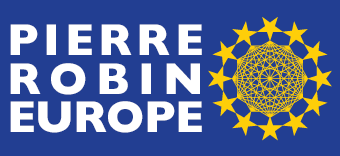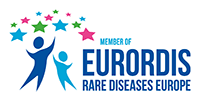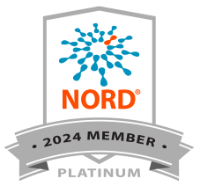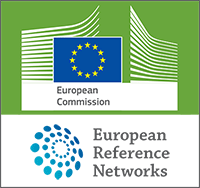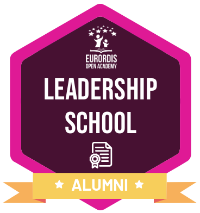The Dutch Ministry of Health’s letter to us, 15 September 2021
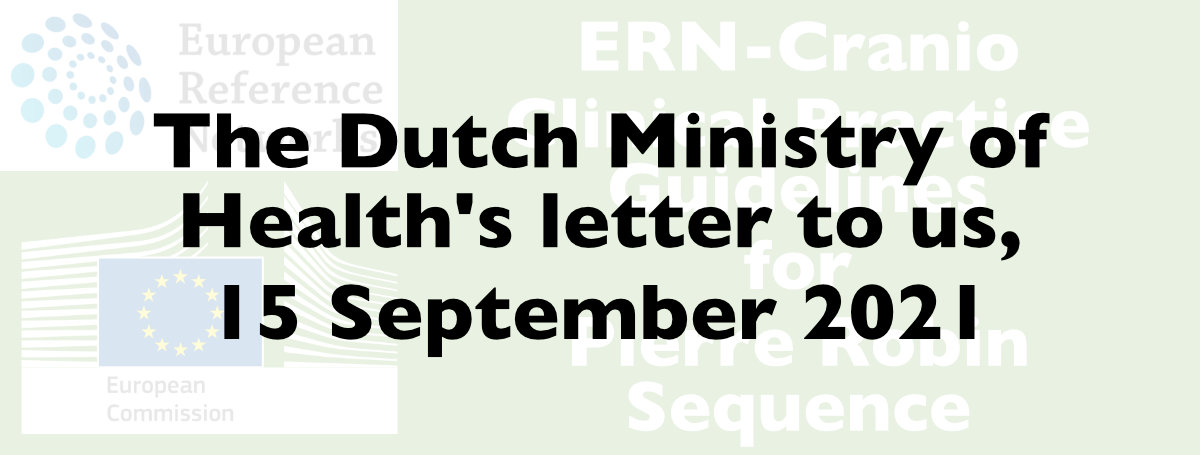
15 September 2021: the Dutch Ministry of Health writes to us; below, our response.
15 September 2021: the Dutch Ministry of Health writes to us; below, our response.
Our response to the Dutch Ministry of Health.
30 September 2021
Minister Tamara van Ark
Dutch Ministry of Health
Postbus 20350
2500 EJ Den Haag
The Netherlands
Re: ERN-Cranio; EU Clinical Practice Guidelines for Pierre Robin Sequence
Dear Minister Tamara van Ark,
We are writing to you in response to the Dutch Ministry of Health’s 15 September 2021 letter to us, Stichting Pierre Robin Europe, concerning ERN-Cranio, and the EU-funded Clinical Practice Guidelines (CPGs) which ERN-Cranio is producing for the rare disease, Pierre Robin Sequence (PRS). In your 15 September letter, you Minister van Ark misstate key facts, rationalize verifiable misconduct by a Dutch hospital operating underneath your Ministerial jurisdiction, betray a fundamental misunderstanding of basic principles of EU integration, and attempt to abdicate your official role by pushing us off to the European Commission, when you as a Minister should be rectifying the misconduct yourself. Ministers are responsible for the things which happen in their area of business; the Dutch Ministry of Health will be held accountable for the gross mismanagement of this ERN project, the substandard results, and the misspent EU funds, as well as the grim consequences for rare disease patients across the EU. If this sensitive and important matter goes unresolved, and becomes public, it will do lasting harm to your Ministry, to the reputation of Erasmus Rotterdam, and to the credibility and sustainability of the EU’s ERN system. We at Stichting Pierre Robin Europe are mandated to represent newborn babies suffering from the complex and life-threatening rare disease, Pierre Robin Sequence. On behalf of these patients, we hope that you Minister van Ark will take belated but effective action.
1. Erasmus Rotterdam’s exclusion of the Tübingen and Amsterdam university hospitals
The Dutch Ministry of Health’s 15 September letter states that the two world-class PRS experts and their Orphanet Centers of Expertise – Professor Dr. Corstiaan Breugem, Head of Pediatric Plastic Surgery at Amsterdam UMC, and Professor Dr. Christian F. Poets, Medical Director of Tübingen University Hospital’s Department of Neonatology, are now both involved in this EU-funded ERN-Cranio CPG development project which is being run by Erasmus Rotterdam. This is false. They are not involved. Furthermore they have not been involved. Erasmus Rotterdam created EU CPGs for this complex rare disease without involving either of these two world-class PRS experts or their Orphanet Centers of Expertise in any fashion whatsoever. If ERN-Cranio indicated to the Dutch Ministry of Health that Dr. Breugem and Dr. Poets are now involved, or have been involved, then ERN-Cranio has misinformed you. This is an important question of fact. The Dutch Ministry of Health can confirm that Erasmus Rotterdam has excluded and continues to exclude both of these experts by contacting the experts and asking them directly. We provided you with the contact details of these two experts some time ago, in the 30 June 2021 letter we sent to the Dutch Ministry of Health on this exact subject. We will attach our 30 June letter containing their contact information for your convenience. Please let us know how the two experts respond to your inquiry as to whether or not they are or have been involved.
2. Erasmus Rotterdam’s rejection of Tübingen’s feedback
The Dutch Ministry of Health’s 15 September letter also states that the Tübingen University Hospital gave ERN-Cranio feedback on the CPGs. However, the Dutch Ministry of Health should know what Erasmus Rotterdam did with the feedback from Tübingen: Erasmus Rotterdam refused to accept it. On 8 September 2021, two days after the Tübingen University Hospital delivered Erasmus Rotterdam 17 pages of highly valuable meticulously detailed scientific feedback on the draft CPGs, Dr. Eppo Wolvius of Erasmus Rotterdam wrote a very telling message. Dr. Wolvius sent his message to ERN-Cranio’s ePAG leader, and this is a direct quote:
Unexpectedly, I received a feedback form with comments on the RS Guideline from Prof. Poets, Tubingen. I am very surprised to receive these comments from a clinician outside the Steering Group of this Guideline initiated by the ERN CRANIO. Prof Poets informed me the draft was sent to him by Philippe Pakter. Maybe Philippe Pakter received the draft from you and therefore, I am sending you this mail. Please note that at this stage we are not allowed to involve centers outside the ERN CRANIO network. We can only work with ERN CRANIO expert centers as recognized by the European Commission.
Nobody in the international community of PRS experts questions the fact that the Tübingen University Hospital is one of the world’s foremost leaders in PRS treatment and research. The Tübingen Palatal Plate, Tübingen University Hospital’s clinically proven non-surgical technique for treating babies suffering from this life-threatening rare disease, is considered a medical breakthrough, which is why the university hospitals at Stanford Medical School and at Harvard Medical School are both adopting it. And yet Erasmus Rotterdam, which Orphanet does not recognize as a PRS Center or Expertise, and which the Dutch Ministry of Health does not recognize as a PRS Center of Expertise, responded to Tübingen University Hospital and their invaluable medical report by essentially saying, “we don’t want it.”
Dr. Corstiaan Breugem at Amsterdam UMC, which unlike Erasmus Rotterdam, is an Orphanet Center of Expertise for PRS, reviewed the Tübingen University Hospital’s 17 page report. Dr. Breugem, a world-class PRS expert, who we believe has published more internationally peer-reviewed PRS medical studies than any other PRS expert in the entire world, supported the Tübingen University Hospital’s medical conclusions and criticisms. Dr. Breugem refrained from submitting his own feedback to Erasmus Rotterdam, however, based on the safe assumption that any feedback he provided to Erasmus Rotterdam would be rejected as well.
As we stated in our 7 September letter to the Dutch Ministry of Health, Erasmus Rotterdam has run this EU-funded ERN Clinical Practice Guideline development project based on relationships and politics, rather than on experience and expertise. Erasmus Rotterdam has done this to such an extreme extent that two of the EU’s most highly regarded PRS Centers of Expertise – indeed two of the most highly regarded PRS experts in the entire world – have simply given up trying to contribute at all. The fundamental spirit of the EU’s ERN system is supposed to be one of cooperation and pooling of rare disease knowledge and expertise, among the top rare disease experts in the EU. The closed shop environment which Erasmus Rotterdam has defiantly maintained throughout this entire EU-funded project represents a perversion of this essential spirit. Erasmus Rotterdam’s conduct is appalling; babies born with this complex and life-threatening rare disease, Pierre Robin Sequence, deserve much better than this.
3. Erasmus Rotterdam’s false justification for excluding Tübingen and Amsterdam
Dr. Eppo Wolvius justified Erasmus Rotterdam’s refusal to consider Tübingen University Hospital’s feedback by stating that “we are not allowed to involve centers outside the ERN CRANIO network.”
First of all, as we explained in our 30 June letter to the Dutch Ministry of Health, the official EU ERN Methodology which the EU paid for and distributed to every ERN in the ERN system does allow ERN-Cranio to bring in centers from outside the ERN-Cranio network. Thus, what Dr. Wolvius of Erasmus Rotterdam is saying, that “we are not allowed to involve centers outside the ERN CRANIO network”, is demonstrably false. Perhaps Dr. Wolvius is simply misinformed, because he has failed to read the official EU ERN Methodology. Another possibility is that Dr. Wolvius has in fact read the EU ERN Methodology, and that he does know the truth; one can only speculate.
Second of all, and as we explained months ago in our 30 June letter to you, Minister van Ark, ERN-Cranio is very much involving, in this PRS CPG project, a center which is outside of the ERN. This is a verifiable fact, and this verifiable fact flatly contradicts Erasmus Rotterdam’s false claim that “we are not allowed to involve centers outside the ERN CRANIO network.” The Great Ormond Street Hospital in London (GOSH London) is not a member of ERN-Cranio; once again, GOSH London is without any question or doubt “outside the ERN CRANIO network.” Nevertheless, GOSH London is involved in this CPG development project. Not only did Erasmus Rotterdam bring GOSH London into this CPG development project, but Erasmus Rotterdam even permitted GOSH London to play a leading role in the development of these EU ERN CPGs. As confirmed in writing by Erasmus Rotterdam’s Dr. Irene Mathijssen, this EU CPG project is being led by GOSH London, which is outside the ERN, Erasmus Rotterdam, which is not a PRS Center of Expertise, and Utrecht UMC. Meanwhile, there is the remarkable fact that in this official EU CPG project, we see not one single healthcare provider from the most populous Member State in all of the EU, Germany.
Thus: GOSH London, a hospital which is outside of the ERN-Cranio network, and which is outside of the EU itself, is playing a leading role in this EU-funded EU ERN Clinical Practice Guideline development project… at the exact same time that Dr. Eppo Wolvius of Erasmus Rotterdam justifies Erasmus Rotterdam’s refusal to consider Tübingen University Hospital’s meticulous scientific feedback by stating that “we are not allowed to involve centers outside the ERN CRANIO network.” Erasmus Rotterdam is making things up as they go along. The inevitable result of Erasmus Rotterdam’s arbitrary and politically motivated process will be substandard ERN Clinical Practice Guidelines, with grim consequences for Pierre Robin Sequence babies across the entire EU.
4. Patient involvement: Dutch requirements, and EU requirements
Regarding the specific question of patient involvement in this EU CPG project: the Dutch Ministry of Health’s 15 September letter states that “In the Netherlands, the National Healthcare Institute (Zorginstituut) has stipulated the criteria for care standards and guidelines.” The Dutch Ministry of Health’s letter goes on to explain that while Erasmus Rotterdam’s management of ERN-Cranio’s CPG project may not meet the EU’s ERN requirements for patient involvement, it might still meet the Dutch National Healthcare Institute’s requirements for patient involvement. Finally, regarding the question of whether or not ERN-Cranio’s CPG project meets the Dutch National Healthcare Institute’s requirements for patient involvement, your 15 September letters tells us that this is not a question which the Dutch Ministry of Health should address; instead, it is the Dutch National Healthcare Institute which should explore this particular matter. Thus, according to your reasoning, none of the issues raised in our 30 June letter, or in our 7 September letter, actually involve the Dutch Ministry of Health – and therefore you will take no action at all. Here are some important facts.
First of all, this ERN-Cranio CPG development project which is being run by Erasmus Rotterdam is not a Dutch project; this is an EU-funded ERN CPG development project. The goal is not to create guidelines for Holland; the goal is to create guidelines for the EU. Thus, the Dutch criteria which are promulgated and enforced by the Dutch National Healthcare Institute (Zorginstituut) in the Netherlands have no absolutely bearing whatsoever on any of the issues raised in our 30 June letter or in our 7 September letter to you, the Dutch Minister of Health.
Second of all, in the EU, whenever there is overlap or conflict between an EU Member State’s rules, and EU rules, the EU rules prevail. This is a fundamental principle of EU integration which any legal advisor in the Dutch government can readily confirm. Invoking Dutch criteria in the context of an official EU project is not only inappropriate, it is embarrassing. Minister van Ark, if every EU Member State were free to ignore EU rules, based on the argument that the conduct in question potentially satisfies domestic requirements, then there would be no EU. It is bewildering that an official letter from a Dutch Ministry can overlook this basic fact.
5. The Dutch Ministry of Health cannot avoid responsibility in this matter
The Dutch Ministry of Health cannot absolve itself of responsibility in this matter. What we are discussing here is official misconduct on the part of Erasmus Rotterdam, a Dutch hospital, and you are the Dutch Minister of Health. In every democracy across Europe, Ministers are responsible for the things which happen in their area of business.
Erasmus Rotterdam has failed to meet the minimum requirements set forth in the official EU ERN Methodology, which anybody can access here:
https://ern-ithaca.eu/documentation/guidelines/#ern-guidelines-methodological-handbook/
Nevertheless you Minister van Ark have suggested in your 15 September letter that we, Stichting Pierre Robin Europe, should contact the European Commission to raise this issue, so that you, the Dutch Minister of Health, can stay out of it. Here you are overlooking yet another fundamental principle of EU integration. As explained by the European Commission itself, when EU rules are violated, “It is recommended that you first take the matter up with national bodies or authorities, such as an ombudsman or a local court. This is because public authorities in EU Member States have the main responsibility for the application of EU law.” If a Dutch hospital, in an EU-funded project, is ignoring EU rules and requirements, then it is your job, as the Dutch Minister of Health, to take timely and meaningful action – not send us off to Brussels. Since sending you our 30 June letter three months ago, you still haven’t taken meaningful action – and your last letter creates the strong impression that you are attempting to avoid your Ministerial responsibility altogether by giving us the run-around, van het kastje naar de muur.
6. Intervention requested
This EU-funded project to develop EU Clinical Practice Guidelines for Pierre Robin Sequence (1) should be restarted from the beginning, and (2) should be run in accordance with the EU’s official ERN Methodology, and (3) should include in the Guideline Development Group the EU’s top Pierre Robin Sequence Centers of Expertise, which unquestionably includes the world-class PRS Centers of Expertise at Amsterdam UMC, and the Tübingen University Hospital. Our Board of Directors has formally concluded that anything less would constitute a profound betrayal of the interests of the patients we are mandated to represent – newborn babies suffering from the complex and life-threatening rare disease, Pierre Robin Sequence.
Minister van Ark, we remind you once again that the Dutch Ministry of Health will be held accountable for the failures of this ERN project, and for the misspent EU funds. If this situation goes unresolved, and becomes public, it will do lasting harm to your Ministry, to the reputation of Erasmus Rotterdam, and to the credibility and sustainability of the EU’s ERN system in general.
Kind regards,
Philippe Pakter
Stichting Pierre Robin Europe, voorzitter
Member, EURORDIS, The European Organisation for Rare Diseases
Member, VSOP, Vereniging Samenwerkende Ouder- en Patiëntenorganisaties, The Dutch Patient Alliance for Rare and Genetic Diseases
PhD candidate, law: “Access to healthcare in Europe: the effectiveness of EU legislation in the context of rare disease patients”
